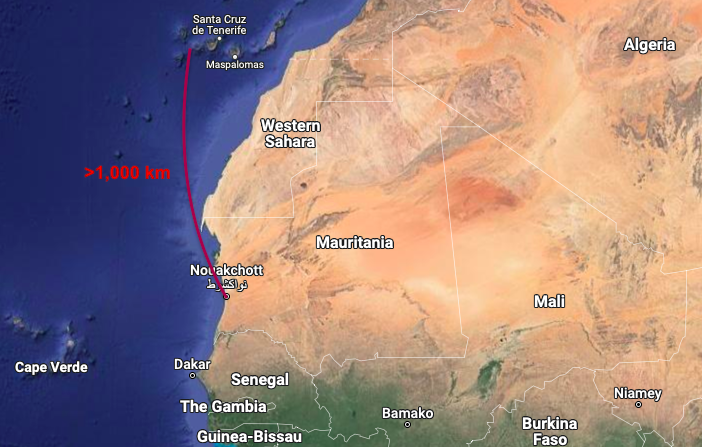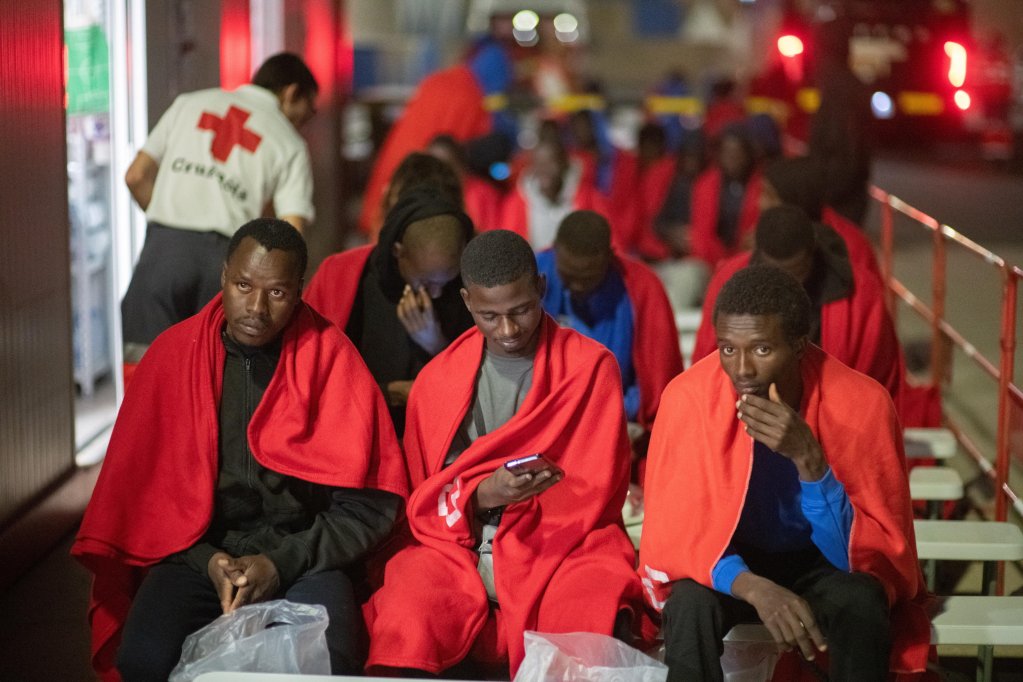After about three weeks of quiet at sea, the Canary Islands recorded over 300 new irregular arrivals over the past weekend. While Spain's agreements with North and West African governments have resulted in an overall fall in successful arrivals, the issue of migrant boats continues to be the main political issue for many politicians on the archipelago.
For about three weeks, the waters surrounding the Spanish archipelago of the Canary Islands remained relatively quiet, with irregular migrant journeys being intercepted along the African coast long before reaching the Spanish territory in the Atlantic Ocean.
However that all changed on Saturday, when a wooden boat — known as a cayuco — managed to reach the port of La Restinga on the smaller island of El Hierro.
The EFE news agency reported that the vessel with 64 men onboard arrived there unaided by emergency services, four days after setting sail from Nouadhibou in Mauritania, located some 750 kilometers southeast from the archipelago.
Two of the passengers on board had to be taken to hospital in the early morning hours, according to reports.
The Atlantico Hoy newspaper, which is based on the island of Tenerife, reported that the men traveling in the boat came from Mali, Senegal, Mauritania, Guinea, and The Gambia.
Read AlsoMali criticizes Mauritania for ill treatment of irregular migrants
Further arrivals on Sunday
Then on Sunday evening, Spain’s Maritime Rescue and emergency services had to spring into action when further small boats started to approach the archipelago.
First, they located a boat carrying 21 migrants near the island of Gran Canaria. Upon arrival on the island at the Arguineguin dock, eight of them were found to have minor injuries, for which they were treated at a local hospital.

In the ensuing hours, a wooden boat with 235 sub-Saharan migrants was intercepted near El Hierro.
The group consisted of 149 men, 64 women, and 22 minors, though it is unclear at this point how many of the underage individuals were unaccompanied.
A rescue ship, the Salvador Navia, was sent to the location were the boat had been detected on radar images to ensure the safety of the large group of irregular migrants.
According to the local Canarias7 news outlet, the second mission took all night, with the last passengers disembarking only around 9:30am local time at Las Restinga Pier in El Hierro, where they were assisted by medical professionals according to need.

Read AlsoCanary Islands: Two migrants dead on boat that reached Tenerife
Canary Islands route still most dangerous in the world
The Canary Islands route remains one of the busiest — and most dangerous — routes to the European Union.
In fact in 2024, Spain ranked as the second highest receiving country for asylum applications in the EU, second only to Germany.
Official data from the Interior Ministry shows that irregular arrivals by sea or land totaled nearly 64,000 in 2024, up from 57,000 in 2023.
So far this year, over 25,000 irregular arrivals have been recorded in Spain, according to UNHCR data, suggesting that arrival numbers are falling compared to previous years.
Still, the issue of deaths at sea continues to be the most dramatic on the route to the Canaries: Two months ago, the NGO Caminando Fronteras reported that at least 1,865 people had died in the first half of the year while trying to reach the Spanish archipelago, including over 300 children.
Read AlsoOver 1,800 died in 5 months while trying to reach Spain, says NGO
with EFE
